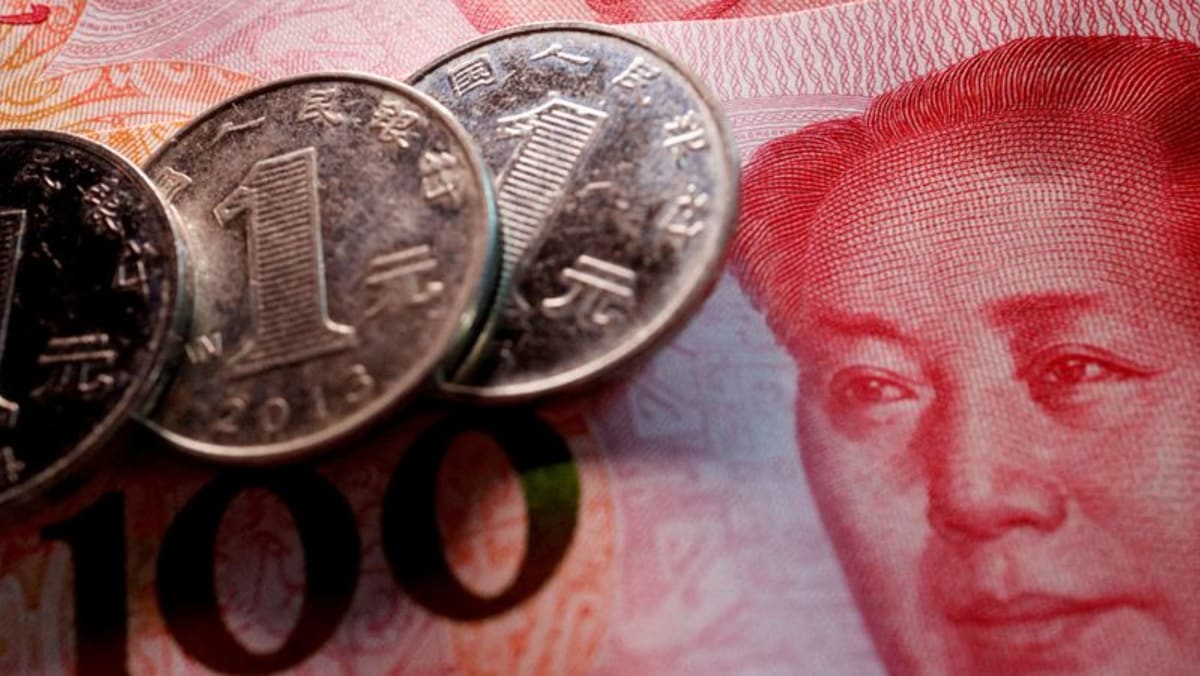China's central bank has asked domestic banks to scale back their outward investments through the Bond Connect scheme in an effort to contain yuan flows into Hong Kong and limit the supply of yuan in offshore markets, as part of various measures to prop up the Chinese currency.
The US dollar will remain dominant in global trade, but China's yuan is gaining popularity among developing countries such as Russia, Brazil, India, and South Africa.
Global investors are skeptical of China's ability to stabilize its financial markets, with many predicting that economic pressures will cause the offshore exchange rate of the yuan to reach record lows.
Chinese state-owned banks are expected to lower interest rates on existing mortgages, with the quantum of the cut varying for different clients and cities, in an effort to revive the property sector and boost the country's economy.
China's currency, the yuan, is at its lowest level against the dollar since the 2008 financial crash, which raises concerns about the country's economic stability and its ability to boost domestic consumption.
China's economy risks falling into a vicious cycle of debt and deflation, but economist Shang-Jin Wei suggests that launching an aggressive bond-buying campaign and allowing the yuan to lose value may be necessary to avoid this trap.
The dollar strengthens against the yen and keeps the euro and sterling near three-month lows as investors rely on the resilience of the U.S. economy, while China's onshore yuan hits a 16-year low due to a property slump and weak consumer spending.
China's new yuan loans are expected to rebound in August after a decline in July, as the central bank implements measures to support economic growth during soft domestic and international demand.
The Chinese yuan bounces back from a 16-year low as the central bank vows to stabilize the currency and take necessary actions to correct market moves.
China's offshore yuan weakened after the country's central bank announced a cut in banks' reserve requirement ratio, which aims to support the economy but could further worsen the decline of the yuan.
China's currency, the yuan, has depreciated over 8% against the dollar as the Chinese economy grows less than expected, making it harder to reach its growth target of 5% for 2023, and worries about the economy have intensified due to issues in the real estate sector and financial health of local governments, causing concerns about the future of the yuan which may experience a slow but steady depreciation in the face of a weak dollar and a desire to maintain a trade surplus.
The dollar remains stable in Asia, while the yuan strengthens due to positive economic data from China.
China is unlikely to devalue its currency, the yuan, despite concerns that it could do so to boost exports, as such a move would risk intensifying capital flight and tightening financial conditions, according to the Institute of International Finance. Instead, the focus will be on domestic easing measures to maintain steady growth, although there is the challenge of balancing the yuan's stability against the strengthening US dollar and other major currencies.
Major Chinese property company Sino Ocean has suspended offshore debt payments and trading of its US dollar-denominated bonds as it faces liquidity pressures due to a sales slump in the real estate industry, adding to concerns about China's property sector.
China is experiencing a significant outflow of capital, putting pressure on the yuan and raising concerns for authorities as the currency weakens and financial markets become destabilized.
